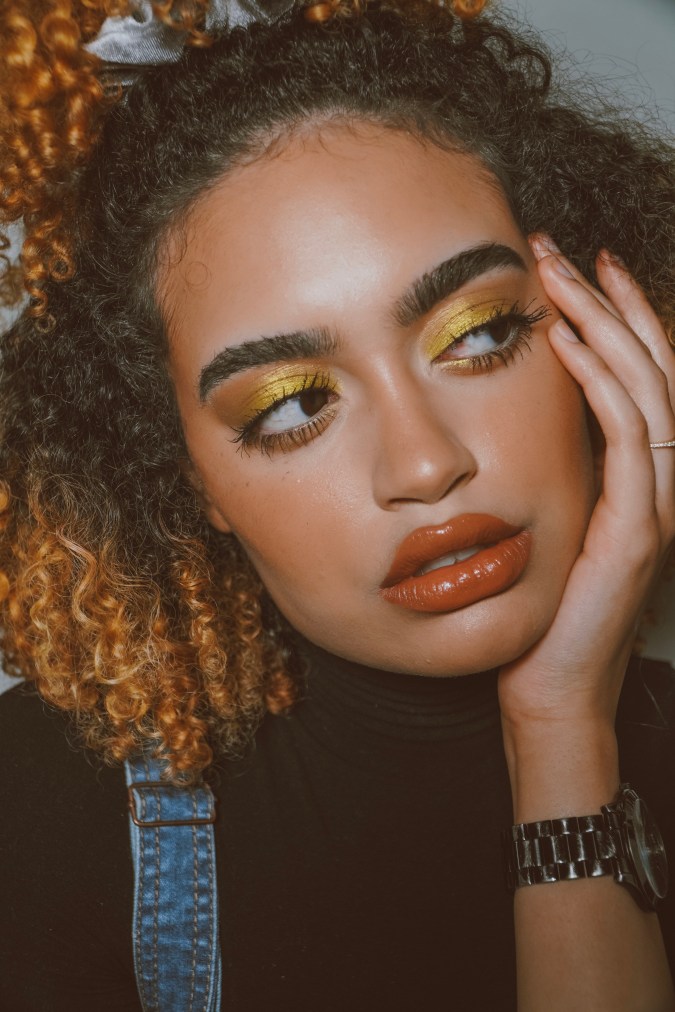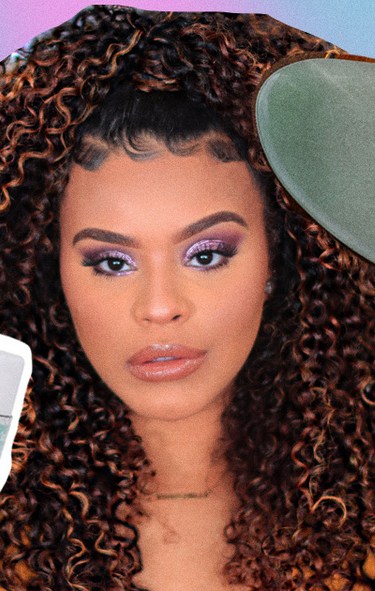The United States has seen a 700% increase in reports of serious mental distress in the past few months, according to Time. As a result of the novel coronavirus outbreak, many people are experiencing extreme bouts of stress and anxiety—understandably so.
While dermatologists have long known that stress can negatively impact the skin, how are stress-generated skin concerns exacerbated during a global pandemic?
“When we do not feel in control of what is happening in the world this can cause a great amount of anxiety. When anxiety and stress are high, inflammation in our bodies can increase and our skin mirrors this inflammation,” Dr. Caroline Robinson, a Chicago-based dermatologist and founder of Tone Dermatology, tells Remezcla.
As a result of the pandemic, Dr. Robinson has noticed worsening acne in her patients, especially from those who are healthcare workers and/or find themselves wearing personal protective equipment for long periods of time.

High rates of stress can cause common conditions, such as dandruff, to appear more frequently.
“When the pandemic cases began to reach their highest levels,” Dr. Robinson recalls, “I observed patients complaining of flare-ups of their psoriasis, cold sores, eczema, dandruff and many other conditions.”

Janibell Rosanne, a Dominican content creator, has personally experienced frequent cold sores during these past few months, which she believes are triggered by stress.

“I’ve noticed that my skin has been super puffy lately,” the beauty influencer shares. “I think it’s due to the lack of a consistent sleep schedule. I used to be in bed by 11 p.m. before COVID, but now I’m up until 2 or 3 a.m. more often than not.”
Janibell has been treating the puffiness with a gua sha, which she uses for 15 minutes in the morning, after applying her favorite serum, Urban Skin Rx’s Hydranutrient Radiance Restore Oil.
Although she hasn’t noticed any unusual changes to her skin as a result of COVID-19, Franchelli Rodriguez is doing her best to take extra good care, as she does have acne-prone skin.
“During this time, I try my best to really pamper my skin,” she says. “I steam my face and do brightening face masks twice a week. I also drink a lot of water to help the overall health of my skin.”
The Dominican beauty and lifestyle influencer recommends Urban Skin Rx’s 3-in-1 Even Tone Cleansing Bar to combat hyperpigmentation and the Banana Bright Vitamin C Serum by Ole Henriksen for acne scars.
While it might sound counterintuitive to put more moisture on your face when you’re breaking out, Dr. Robinson says that a good moisturizer is one of our best defenses against stress-related skin concerns.
“We can certainly understand how this would be useful in the case of hand dermatitis [Ed. note: hand dermatitis is a hand rash that dermatologists have seen increased cases of, probably as a result of excessive handwashing], but even conditions like acne tend to respond better when the skin is regularly moisturized. Dry skin is more likely to become cracked and irritated; the skin microbiome functions optimally when our skin is hydrated and not inflamed,” she explains.
Dr. Robinson recommends Sente’s Dermal Repair Cream to keep your face hydrated and moisturized and Vaseline’s Intensive Care Calm Healing Lotion for the body.
During times of high stress and anxiety, the best approach to prevent stress-generated skin concerns is to, yes: reduce stress. While we can’t control what’s happening around us, we can focus on aspects of our lives that we do have control over. When things, often inevitably, become too much, the best thing we can do for our skin, mental health and others is to reach out for help.




